TranslateStatement Struct Reference
A character set replacment statement from sed. Typically specified like this:
More...
#include <muSED.h>
List of all members.
Public Member Functions |
| LineRangeActivationState | activationState () |
| bool | active (ScriptRuntimeContext *context, Statement *statement) |
| | return true if the patternBuffer, line number, and isLast_ flag in the specified context match the requirements of the filters.
|
| void | adoptChild (Statement *newbie) |
| | Take ownership of a new statement and schedule it for delete when *this is destructed.
|
| void | clear () |
| std::string | debugPrefix () const |
| virtual std::string | debugString () const |
| virtual std::string | debugStringPrefix () const |
| bool | execute (ScriptRuntimeContext *context) |
| | Execute this statemement in a given runtime context.
|
| void | setActivationState (LineRangeActivationState newState) |
| | TranslateStatement (Statement *parent, int fc, Filter const &f1, Filter const &f2, bool filtersInverted, std::string const &tgt, std::string const &rep) |
| virtual | ~TranslateStatement () |
Static Public Member Functions |
| static void | debugPrint (Statement *p) |
| template<class StringIterator1 , class StringIterator2 , class CompiledScript > |
| static Statement * | parse (Statement *parent, int filterCount, Filter const &f1, Filter const &f2, bool inverted, StringIterator1 &firstChar, StringIterator2 const &lastChar, size_t line, CompiledScript &script) |
| | Parse a TranslateStatement from an input stream.
|
Public Attributes |
| ActivationMap | childStatementActivationMap_ |
| std::list< Statement * > | childStatements_ |
| Filter | filter1_ |
| Filter | filter2_ |
| int | filters_ |
| bool | inverted_ |
| Statement * | parentStatement_ |
| std::string | replacement_ |
| std::string | target_ |
| CharSetTranslator | translator_ |
Detailed Description
A character set replacment statement from sed. Typically specified like this:
y/target/replacement/
@endode
Note that this translate statement is more flexible than that found in
SED or even gnu SED. In the standard SED statement, the target and
replacement must be simple character lists. But in this statement,
character translation ranges are allowed. So, that this replacement
@code
y/a-z/A-Z/
Will actually translate all characters, a-z into their upper case form. This is the way the standard unix TR command works, but not the way the y command works in sed or even gnu SED. In SED, the above y// command only translates a to A and z to Z (with - being translated into -).
This significant difference is too valuable to ignore -- especially given the relative lack of utility of the SED command (and uncommon use since it is broken!)
Definition at line 858 of file muSED.h.
Constructor & Destructor Documentation
Member Function Documentation
return true if the patternBuffer, line number, and isLast_ flag in the specified context match the requirements of the filters.
- Parameters:
-
| [in] | context | The runtime context in which to determine if the current statement, as defined both by the statement pointer and by line number information in the context, is active. |
| [in] | statement | The statement about to be executed on the current line of input as defined by the line number and is last flag in the context. |
Note that the runtime context keeps track of the activation status of statements, by the statement pointer, based on the filters in a filterable statement. Whenever you have a range filter, the activate function manages the activation state.
Definition at line 316 of file muSED.cxx.
| void adoptChild |
( |
Statement * |
newbie |
) |
[inherited] |
Take ownership of a new statement and schedule it for delete when *this is destructed.
Definition at line 444 of file muSED.h.
| void clear |
( |
|
) |
[inherited] |
| std::string debugPrefix |
( |
|
) |
const [inherited] |
| static void debugPrint |
( |
Statement * |
p |
) |
[static, inherited] |
| std::string debugString |
( |
|
) |
const [virtual] |
| std::string debugStringPrefix |
( |
|
) |
const [virtual, inherited] |
Execute this statemement in a given runtime context.
- Parameters:
-
| [in,out] | context | The runtime context in which to execute this statement. |
| [in] | map | Ignored. |
- Returns:
- true if the parsing was successful.
Implements Statement.
Definition at line 261 of file muSED.cxx.
| static Statement* parse |
( |
Statement * |
parent, |
|
|
int |
filterCount, |
|
|
Filter const & |
f1, |
|
|
Filter const & |
f2, |
|
|
bool |
inverted, |
|
|
StringIterator1 & |
firstChar, |
|
|
StringIterator2 const & |
lastChar, |
|
|
size_t |
line, |
|
|
CompiledScript & |
script | |
|
) |
| | [static] |
Parse a TranslateStatement from an input stream.
- Returns:
- A statement pointer, or null
- Parameters:
-
| [in] | parent | A pointer to the statement that will own this one. |
| [in] | filterCount | A count of the range filters for this statement. 0 means that this statement applies to all lines. 1 means that this statement only applies to specific line either by line number within the input stream, or by any line in the stream matching a regular expression, or by the very last line of the stream. When filterCount == 2, then the script statement only applies to a range of lines within the input stream. The range is defined in a manner documented by class muSED::Filter. |
| [in] | f1 | Filter1. |
| [in] | f2 | Filter2; |
| [in] | inverted | Flag indicating that the f1/f2 logic is inverted. |
| [in,out] | firstChar | A pointer to the first character to be parsed. |
| [in] | lastChar | The end of the range of characters defining a script fragment. |
Definition at line 921 of file muSED.h.
Member Data Documentation
The documentation for this struct was generated from the following files:

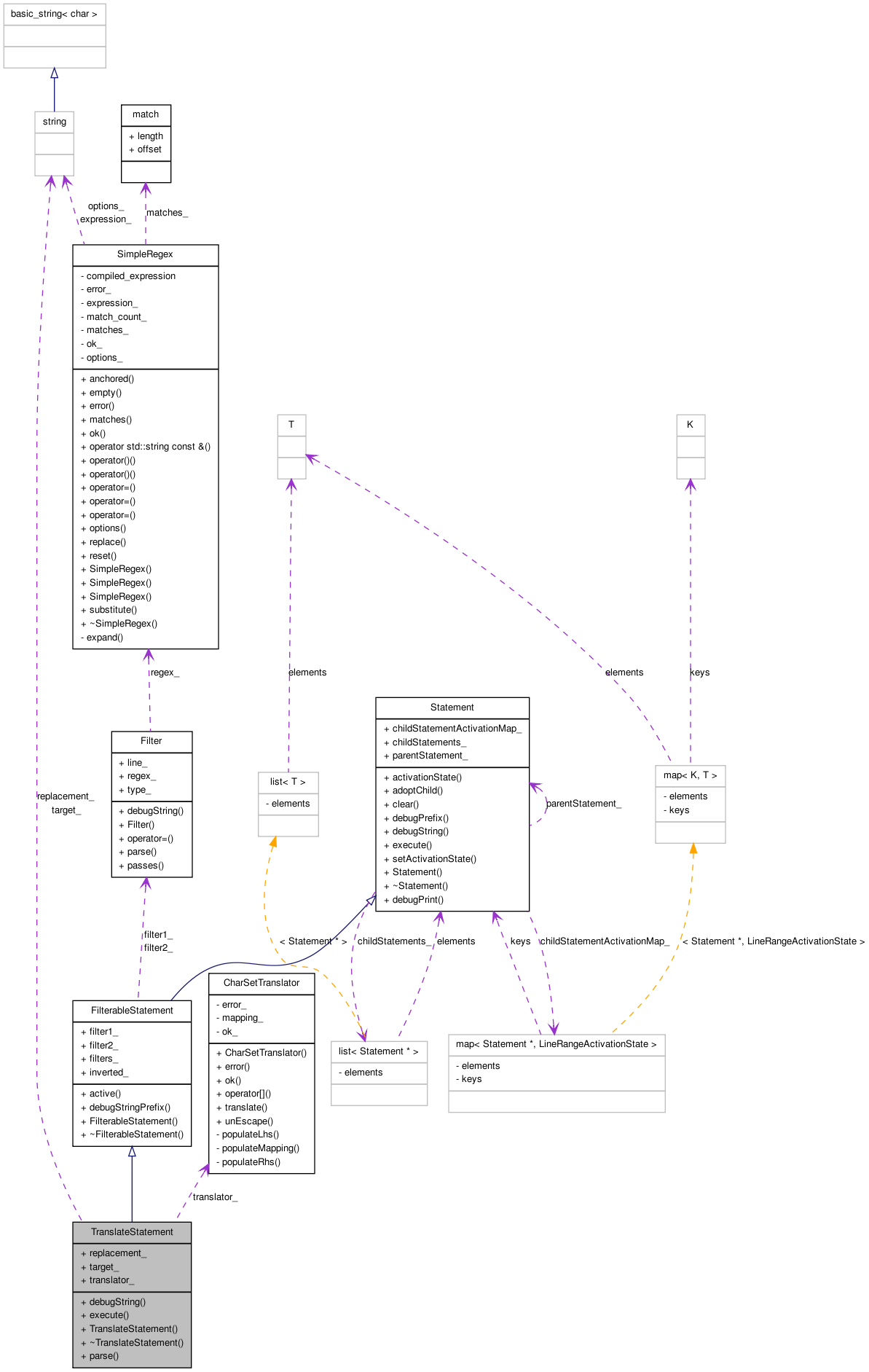
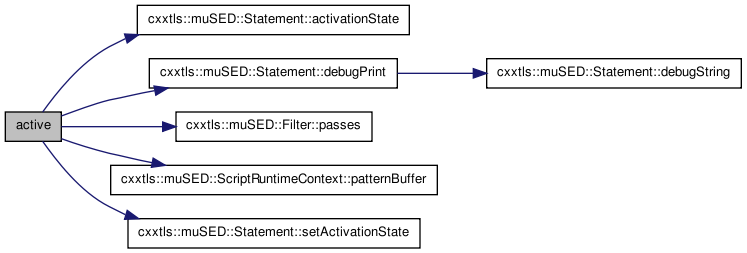
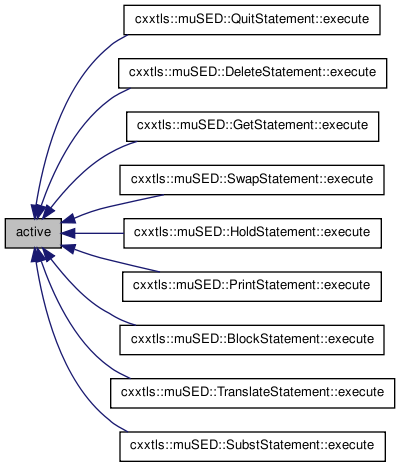




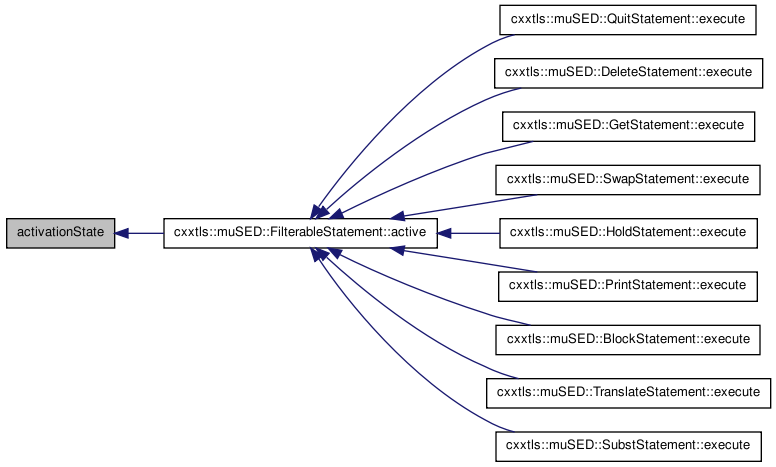


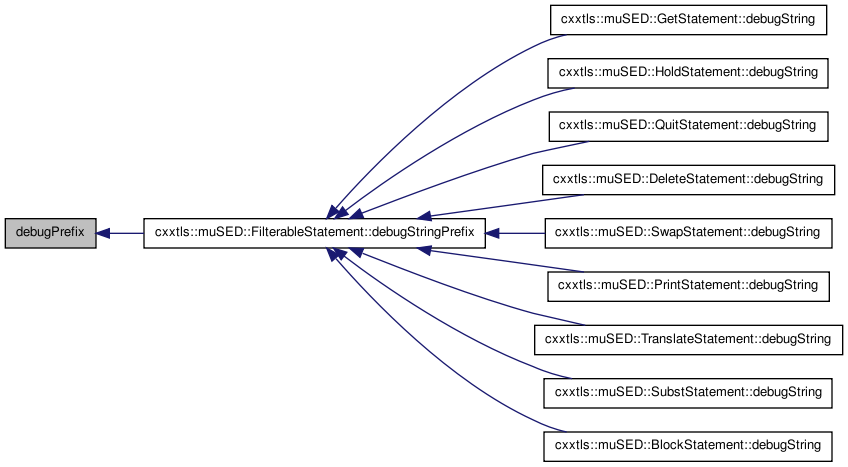

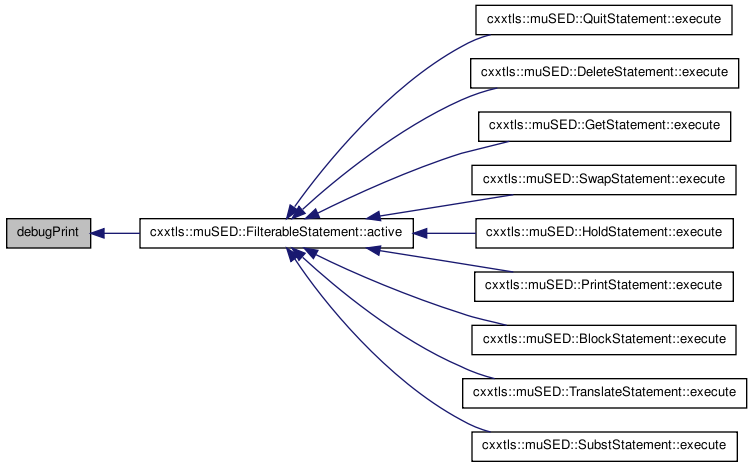


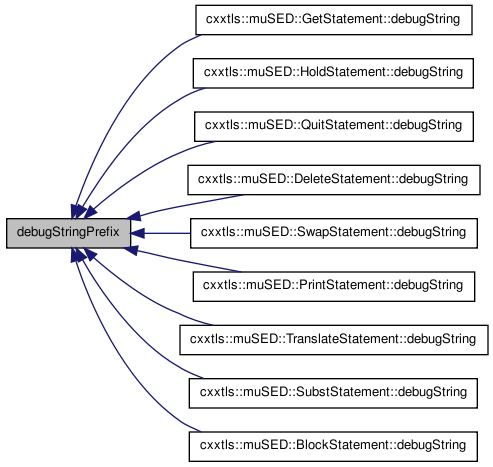
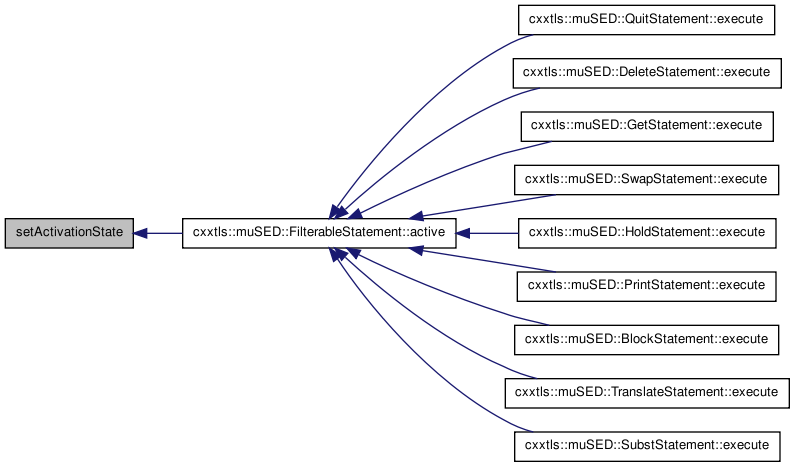
 1.6.3
1.6.3